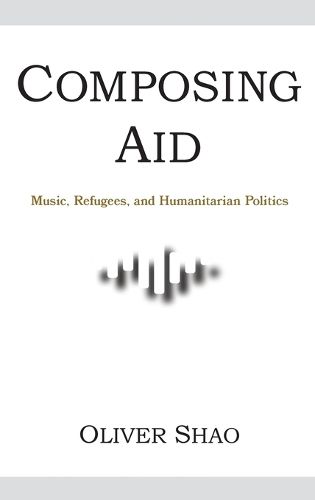Readings Newsletter
Become a Readings Member to make your shopping experience even easier.
Sign in or sign up for free!
You’re not far away from qualifying for FREE standard shipping within Australia
You’ve qualified for FREE standard shipping within Australia
The cart is loading…






Music and arts initiatives are often praised for their capacity to aid in the rehabilitation of refugees. However, it is crucial to recognize that this celebratory view can also mask the unequal power dynamics involved in regulating forced migration.
In Composing Aid, Oliver Shao turns a critical ear towards the United Nations-run Kakuma Refugee Camp in Kenya, one of the largest and oldest encampments in the world. This politically engaged ethnography delves into various cultural practices, including hip hop shows, traditional dances, religious ceremonies, and NGO events, in an urbanized borderland area beset with precarity and inequality. How do songs intersect with the politics of belonging in a space controlled by state and humanitarian forces? Why do camp authorities support certain musical activities over others? What can performing artists teach us about the inequities of the international refugee regime?
Offering a provocative contribution to ethnomusicological methods through its focus on activist research, Composing Aid elucidates the powerful role of music and the arts in reproducing, contesting, and reimagining the existing migratory order.
$9.00 standard shipping within Australia
FREE standard shipping within Australia for orders over $100.00
Express & International shipping calculated at checkout
Music and arts initiatives are often praised for their capacity to aid in the rehabilitation of refugees. However, it is crucial to recognize that this celebratory view can also mask the unequal power dynamics involved in regulating forced migration.
In Composing Aid, Oliver Shao turns a critical ear towards the United Nations-run Kakuma Refugee Camp in Kenya, one of the largest and oldest encampments in the world. This politically engaged ethnography delves into various cultural practices, including hip hop shows, traditional dances, religious ceremonies, and NGO events, in an urbanized borderland area beset with precarity and inequality. How do songs intersect with the politics of belonging in a space controlled by state and humanitarian forces? Why do camp authorities support certain musical activities over others? What can performing artists teach us about the inequities of the international refugee regime?
Offering a provocative contribution to ethnomusicological methods through its focus on activist research, Composing Aid elucidates the powerful role of music and the arts in reproducing, contesting, and reimagining the existing migratory order.